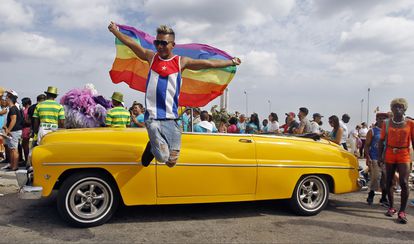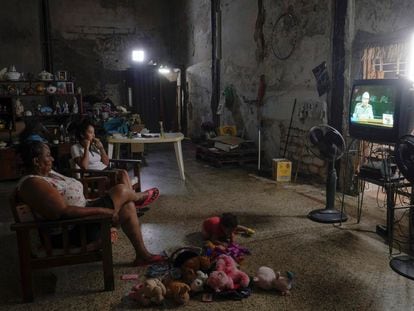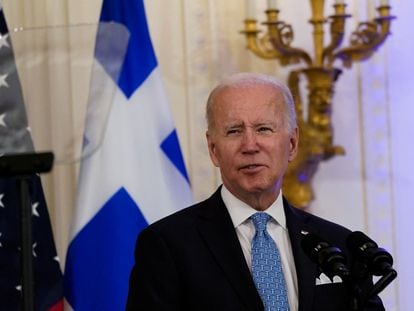Cuba approves same-sex marriage
Cubans voted in favor of a referendum to ratify a Family Code that will also give gay couples the right to adopt
/cloudfront-eu-central-1.images.arcpublishing.com/prisa/T42ORR57JNCWHLIJPOL4LBDW4M.jpg)
Cuba voted “yes” on Sunday to ratify a Family Code that will allow same-sex marriage and give gay couples the right to adopt – a major advance for a country where the LGBTQ+ community has been historically marginalized. It is the ninth country in Latin America to legalize same-sex marriage, after Argentina, Chile, Uruguay, Brazil, Colombia, Ecuador, Costa Rica and Mexico.
Over eight million Cubans were eligible to vote at Sunday’s referendum. More than 3.9 million voters voted to ratify the code (66.9%), while 1.95 million opposed ratification (33%), Alina Balseiro Gutierrez, president of Cuba’s national election commission (CEN), said on state-run television on Monday. The abstention rate was 26%, a higher figure for a country that traditionally has very high turnout rates. What’s more, the number of abstentions, blank ballots, null ballots and “no” votes equalled 4.4 million, meaning nearly half the population did not explicitly support the Family Code, according to CEN data.
Despite this, experts agree that the success of the referendum marks a landmark achievement for the LGBTQ+ community, which has been fighting for years for greater rights. The LGBTQ+ community suffered greatly in post-revolution Cuba, with many people sent to labor camps during the 1960s.

“Justice has been done,” Cuban President Miguel Diaz-Canel wrote in a tweet. “It is paying off a debt with several generations of Cuban men and women, whose family projects have been waiting for this law for years,” he said.
Following the results, same-sex couples took to social media to celebrate the outcome and announce that they were getting married.
Indeed, experts say the blank and null ballots were protest votes against the government, rather than opposition to the new code. Ahead of the vote, some LGBTQ+ activists even announced on social media that they would be voting “no” at the referendum to protest the political situation in the country. The Cuban government had campaigned strongly for the “yes” vote, with state media following the official line. The fact that, despite this, nearly 4.4 million voters did not fully support the code will give the government reason for pause, say experts.
But even critics of the Cuban government have praised the new code, while also pointing to the ongoing challenges facing the island. Prestigious jurist Julio Fernández Estrada, who has been living outside Cuba for months, described it as a “very progressive law,” in an interview with Hypermedia magazine. “It is a code for an ideal country, for the country I would like [to live in], but not for the country that exists in reality. We are fighting for bread and antibiotics, and we have a hard time looking at the part of justice that is hidden underneath our material and basic survival.”
The 100-page document – which replaces the 1975 Family Code – also allows surrogate pregnancies (among close relations and not for financial gain), recognizes step-mothers and step-fathers as legal guardians and ends child marriages (up until now, a 14-year-old girl could marry a 16-year-old boy with parental authorization).
More information












































